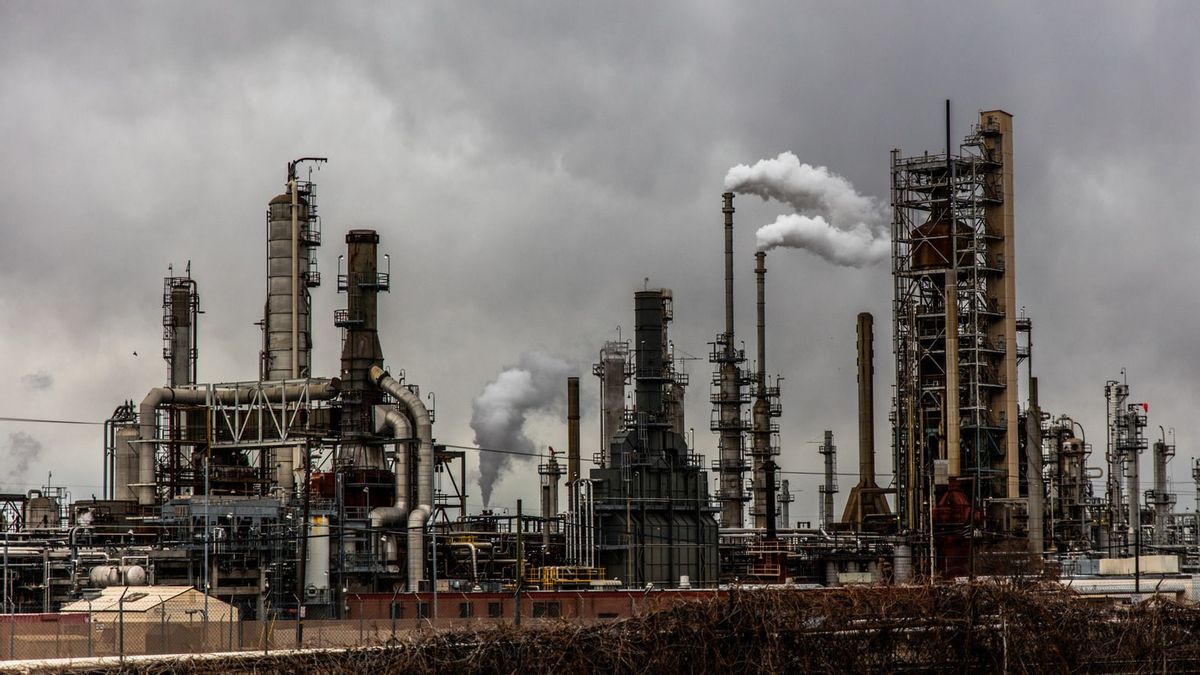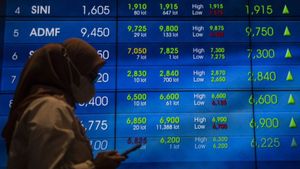JAKARTA - Crude oil futures rebounded at the close of trading Tuesday (Wednesday 21 July morning WIB), as market participants raced to take advantage of prices that have been discounted to a two-month low touched in the previous session.
Brent crude futures for September delivery rose 73 cents, or 1.1 percent, to settle at 69.35 dollars a barrel, after dropping 6.8 percent on Monday July 29.
The global benchmark oil price has fallen from a peak above $77 hit in early July, the highest since late 2018.
U.S. West Texas Intermediate (WTI) crude futures for delivery in August added 1.0 dollars, or 1.5 percent, to settle at 67.42 dollars a barrel in their last trading day, after hitting a low of 65.21 dollars in October. Tuesday 20 July. WTI plunged 7.5 percent on Monday July 19.
Monday's July 19 sell-off was driven by fears of a demand meltdown amid rising COVID-19 cases, pushing oil around 7.0 percent lower and hitting other riskier assets. The oil market also weakened on news that the Organization of the Petroleum Exporting Countries and its allies, known as OPEC+, have reached an agreement to increase supply in the coming months.
"There's a bottom picker trying to get into this dip," said Bob Yawger, director of energy futures at Mizuho in New York.
The expiration of the WTI contract for August delivery added volatility to the market, Yawger said. WTI futures next month, September, were up 94 cents, or 1.4 percent, at $67.29 a barrel.
Oil prices pared gains in after-hours trading (regular trading) after industry figures unexpectedly showed U.S. crude and gasoline inventories rose 806,000 barrels and 3.3 million barrels, respectively, last week, according to two market sources, citing American Petroleum Institute.
If confirmed by government figures on Wednesday local time, the drawdown of crude stockpiles would end an eight-week decline in inventories. Analysts polled by Reuters had expected declines for US crude and gasoline inventories.
Traders are now awaiting official data on US crude stockpiles when the US Energy Information Administration (EIA) releases its weekly oil status report on Wednesday. The market is skeptical that the price increase will last long.
"It's hard to see prices rebound unless virus jitters are brought back under control," said Stephen Brennock of oil broker PVM. "The market is clearly nervous about the demand outlook."
The Delta variant of the coronavirus has become the dominant strain worldwide, US officials said Friday, July 16.
This variance is unlikely to jeopardize the global growth recovery, although it could cause a "regional hiccup," said Julius Baer analyst Carsten Menke.
Also weighing on markets was a deal on Sunday (07/18/2021) by the Organization of the Petroleum Exporting Countries and its allies, collectively known as OPEC+, to increase production from August, lifting more supply curbs imposed when the pandemic hit last year.
The English, Chinese, Japanese, Arabic, and French versions are automatically generated by the AI. So there may still be inaccuracies in translating, please always see Indonesian as our main language. (system supported by DigitalSiber.id)













